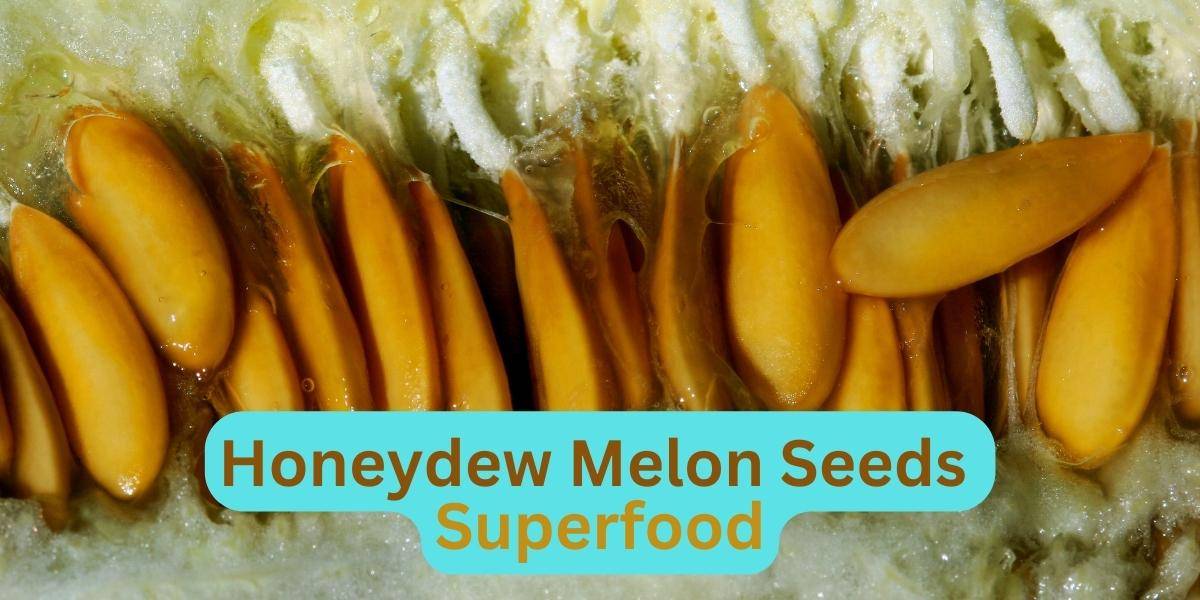Honeydew melon seeds, found inside the delicious fruit, are often overlooked despite being nutrient-rich. In our guide, we’ll explore their history, health benefits, and uses. These versatile seeds can be roasted, blended into smoothies, or used in various recipes. Discover the hidden potential of honeydew melon seeds and how they can positively impact your health and well-being.
History and Origin of Honeydew Melon Seeds
Honeydew melon seeds’ journey began around 2400 BCE in Egypt, where they were cultivated as a prized delicacy for royalty and nobility. This succulent fruit soon spread to other regions, such as Persia, where it gained popularity for its refreshing taste and health benefits. Trade routes expanded and brought honeydew melons to China, where they underwent further development to enhance their sweetness and size. The melon eventually made its way to Europe in the 15th century, and from there, it was brought to the Americas by early explorers and settlers. Today, farmers grow these seeds worldwide, offering distinct flavors and nutritious qualities that delight taste buds.
Nutritional Profile of Honeydew Melon Seeds
As we have described the nutritional benefits of bitter-melon seeds in our previous article, here is a nutritional profile of honeydew melon seeds:
Macronutrients
Amazingly, these seeds provide healthy fats, carbohydrates, and a modest calorie count for a nutritious snack option.
Vitamins and Minerals
Rich in essential minerals, honeydew seeds boast magnesium, phosphorus, and potassium along with vitamins B and E.
Fiber and Protein Content
Offering dietary fiber and protein, these seeds promote digestive health and support muscle growth
Health Benefits of Honeydew Melon Seeds
The health benefits are as follows:
Heart Health
Honeydew melon seeds’ magnesium and potassium content aids in regulating blood pressure and supporting cardiovascular health.
Digestive Health
High in dietary fiber, these seeds promote healthy digestion and prevent constipation.
Immune System Support
Vitamins B and E found in honeydew seeds bolster the immune system, keeping you resilient against illness.
Skin and Hair Health
Antioxidant-rich seeds promote skin and hair health by combating free radicals and reducing inflammation.
Antioxidant Properties
The seeds’ antioxidants help neutralize harmful free radicals, protecting cells from oxidative stress.
Diabetes Management
Honeydew melon seeds’ fiber content aids in blood sugar regulation, making them a suitable snack for diabetes management.
Culinary Uses of Honeydew Melon Seeds
These seeds have amazing culinary uses which are as follows:
Roasting Honeydew Melon Seeds
Season and roast honeydew melon seeds for a tasty, nutritious snack or salad topping.
Honeydew Melon Seed Smoothies
Blend them into your favorite smoothie recipe for added texture and nutrition.
Honeydew Melon Seed Butter
Grind these seeds to create a unique, nutrient-dense seed butter spread.
Incorporating Seeds into Baked Goods
Add these incredible seeds to muffins, bread, or granola bars for a delightful crunch and nutritional boost.
How to Grow Honeydew Melon from Seeds
Here are the various ways to grow these seeds:
Choosing the Right Seeds
Select quality of seeds from a reputable supplier to ensure successful germination and growth.
Planting and Germination Process
Sow honeydew seeds in warm, well-drained soil, placing them 1 inch deep and spacing them 2 feet apart.
Caring for Honeydew Melon Seedlings
Provide seedlings with ample sunlight, consistent moisture, and regular fertilization to promote healthy growth.
Harvesting and Storing
Remove mature seeds from ripe melons, rinse, and air-dry before storing in an airtight container for future planting.
Precautions and Potential Side Effects
Allergic Reactions
Some individuals may experience allergic reactions to them, including itching, swelling, or difficulty breathing.
Digestive Issues
Excessive consumption of these seeds may lead to bloating, gas, or diarrhea due to their high fiber content.
Interactions with Medications
Consult with a healthcare professional before consuming seeds if you are on medications, as they may interact with certain drugs.
Conclusion
In conclusion, honeydew melon seeds offer a plethora of health benefits and versatile culinary uses. Packed with essential vitamins, minerals, and antioxidants, these nutrient-dense seeds promote heart health, digestive function, and immune system support. Their unique flavor and texture make them a delicious addition to various dishes, from roasted snacks to baked goods. Incorporate these seeds into your diet to enjoy their incredible nutritional profile and elevate your culinary creations. Remember to consume them in moderation and consult a healthcare professional if you have concerns about allergies or medication interactions.
Can honeydew melon seeds be consumed raw, or do they need to be roasted first?
Honeydew melon seeds can be consumed both raw and roasted. Roasting honeydew melon seeds enhances their flavor and texture, but you can also eat them raw for a softer, milder taste.
Are honeydew melon seeds safe for people with nut allergies?
Individuals with nut allergies should exercise caution and consult their healthcare provider before consuming honeydew melon seeds, which are not considered tree nuts, because cross-reactivity may occur.
How should I store honeydew melon seeds to maintain their freshness and quality?
To preserve the freshness and quality of honeydew melon seeds, store them in an airtight container in a cool, dry place, away from direct sunlight and heat sources.

